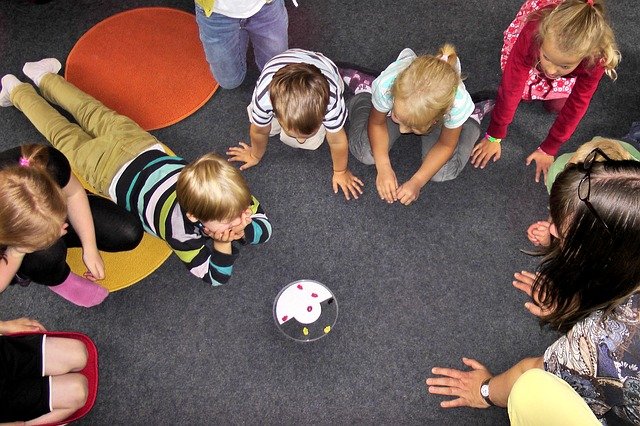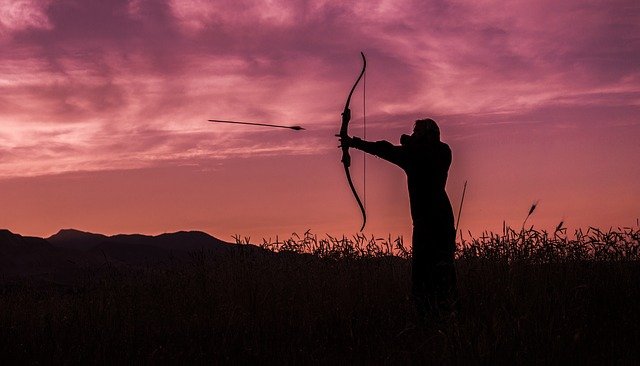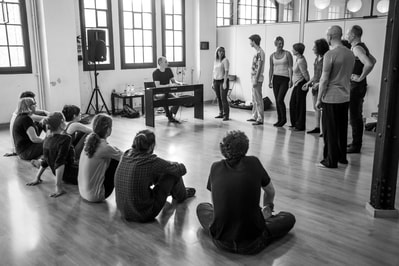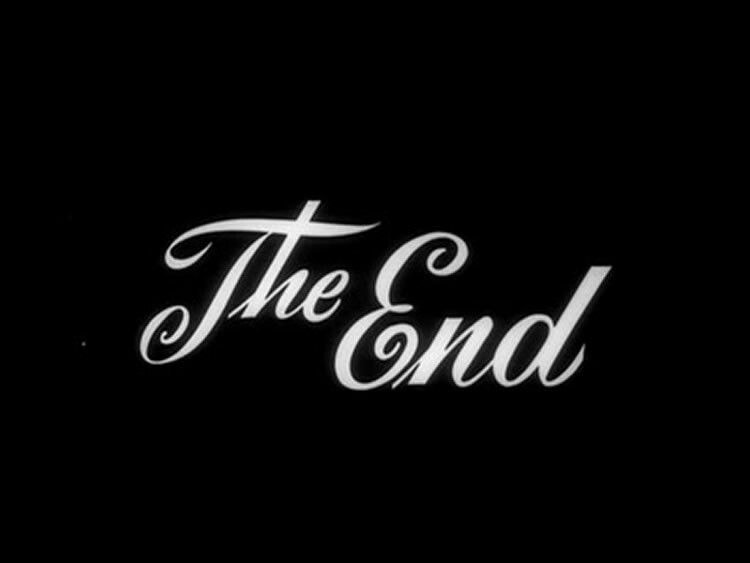Musical Improv and Singing - online?It might have seemed as if our whole world of improvised singing unravelled when we could no longer meet up in person and make up songs together. However, the pandemic came at a time when technology was ready to step in and provide us with not only an alternative way to do things, but in some ways a better way. If the idea of singing improvised songs online seems ridiculous to you, you are not alone. We were equally skeptical at first. But with 3 years of experience behind us now, we have figured out what works (and what doesn't) and we have a growing community of people from all over the world who love to come and sing together and with us. With a live musical accompaniment and the now familiar faces in boxes, online singing has become the place to be to connect and sing with people you would otherwise not ever meet. Here's a few things we have learnt. What about the lag?Ah yes, the dreaded lag. For a long time we tried different technologies to try to minimise the lag. It turns out that there is a limit to how much lag can be eliminated simply due to how fast light can travel down wires. So lag is here to stay. HOWEVER...there is absolutely no lag involved with your experience of singing along to the musician. You hear the music slightly later than I am playing it, and I (on the keyboard) hear your voice slightly later than you are singing it, but you get to sing along in perfect time with yourself. That means if you are singing a solo there is no difference at all to singing in real life. Sure, it is harder work for me as I have to anticipate a little more and compensate for not being able to hear you in rhythm, but after 3 years of practising this I have got it down. So don't worry, just get stuck in and sing your heart out. Surely we cannot sing together at the same time online?The same problem of lag does come in to play when trying to sing together - for example when singing a chorus together. This does not stop people trying but the result can be a little chaotic at times. We have found however that you can sing counter melodies, descants and long held harmony notes very effectively together. If the rhythmic elements are not to important in the song then most things can be sung at the same time. Also we have found that improvisers will just 'Yes and' everything and join in regardless of what the result sounds like. We have never got too hung up on the quality of people's voices so when the time comes to join in and belt out a chorus, you can! Do I need expensive equipment?Absolutely not. What you will need is a pair of headphones. The reason is that if the sound is coming out of your computer or device, and then you are singing, the software (Zoom for example) will cut out the music coming back in through your microphone so it does not feedback. Often this will also cut out your voice and so we will not be able to hear the wonderful things you are improvising. Of course you can upgrade to a headset that has a microphone built in, or a stand alone microphone and headphones to really capture your voice. Sometimes, even with all the right equipment, your voice may cut out from time to time, but we just encourage people to keep the spirit of improvisation going and support each other regardless. How will I be able to improvise without seeing real people?There is no doubt that improvising and singing online is a different experience to doing it in real life. There will be times that are frustrating when you cannot hear people properly, or they are muted, or have a slow connection. However the power of the brain to compensate for all these things is quite remarkable. We have found that after 20 minutes or so, the online space can start to feel like a real room with real people in it. And the power of music also helps to transform what we are seeing into a more vivid and engaging experience. We have run many online sessions (well over 1000 hours now) and have heard feedback from our participants saying that they totally forgot they were at home in front of a computer. The magic can still be created and improvised singing is still a skill that can be practised online and then taken into a real life situation. Who am I likely to meet doing musical improv online?This is the great joy that the online space has given us. We regularly have people joining us from North and South America, all over Europe, Asia and Australasia. We have not had anyone join us from Antarctica yet so if you are there please come and join us! We are able to form connections online that we simply would not be able to do physically, and many of those connections have turned into real life friendships and meetings. If you would like to come and join our community please visit our Online workshops page to see what offerings we have coming up.
0 Comments
Group and Circle Singing GamesWhy play singing games in a circle?"Right, everybody in a circle around the piano" is heard at most of our Musical Improv Classes near the start. Rather than starting by explaining a concept or launching straight into the main focus of the class, getting people to gather around the piano (or guitar or anything really) is a great way to get people moving, seeing each other and for musical improv, making suggestions and contributing or performing in front of other people in a safe way. After a few warm ups (read about some of our favourite warm up singing games) we will often move straight into some singing exercises and games that relate to the main topic or theme of the class while people are still in a circle. Singing games for groupsThese singing exercises and musical improv games are perfect for getting everybody singing together, increasing confidence and practising techniques that can be used in performance or rehearsal straight away. Sing your DayOne of our all time favourite circle games as it allows people to practise improvising Verses and Choruses, let's people check in through the medium of song and gets everyone singing together. One person sings a short verse about their day/week/whatever they like, the next sings the 'chorus' that sums up that verse and then everyone sings the chorus together. A great chance to practise free narrative verses using your own life as inspiration and then to practise coming up with a chorus simple enough that everyone can join in. Read about Sing your Day in more detail at our Musical Improv Games - Sing Your Day page HotspotThis circle singing game can be a real challenge for some so it should be used with caution! One person stands in the middle of the circle and starts to sing an existing song, they are then tagged out by anyone on the outside of the circle who starts to sing a different existing song that they were reminded of or just popped into their head. Ideally the person in the middle should not be left there for too long! Often this game will turn into a Christmas Medley or just a good old singalong. For extra points, try doing a completely improvised version with the same commitment as the existing songs version. To find out more about Hotspot visit our Musical Improv Games - Hotspot page. Acapella HarmoniesThis exercise is great for choirs or people who are trying improvised singing for the first time. Basically everyone starts by just singing or humming any note but all together. You can encourage people to close their eyes and really listen to the ensemble sound. When anyone's breath runs out they just breathe in their own time and then begin singing another note. The variations are endless with rhythmic sounds, consonants, real words and phrases or movement all adding extra spice to this exercise. You can listen to highlights of one of our hour long experiments in our podcast episode or read more about how acapella harmonies work at our Musical Improv Games - Acapella Harmonies page. Song CircleThis singing game allows people to sing a song as a group by contributing one line at a time. It can be really useful for identifying different sections of a song, and for practising the art of accepting anyone's offer (yes and). A subject is given and someone starts by walking over to someone else while singing the first line of a song. That person then takes over and sings the next line while walking towards someone else and so on. You can predetermine a song structure or let the group find one organically. Choruses can be sung by one person or the whole group. There are many aspects of improvised songs that arise in this exercise such as line length, melody, style, anything that makes a song sound like a song really. Find out more about how to play song circle on our Musical Improv Games - Song Circle page. BandThis is a great exercise for children, or people who are singing in a second language as it involves no words, just the universal language of music! Everyone in the circle picks an instrument that they are going to be in this song and when they sing, they sing in the style of that instrument. Common picks are bass, percussion, trumpet, guitar, but you can encourage people to really go for something obscure like bagpipes if they want a challenge. Once the group is all singing together, they can take turns doing solos, or be conducted by someone in the group to be soft, loud, fast or slow. Find out more about how to play band at our Musical Improv Games - Band page. Improvised Rounds - Extreme Challenge!We are including this game as it encompasses the improv spirit of commitment and willingness to fail proudly. This game is not really possible to 'succeed' at, by which I mean it is not going to sound nice, coherent or make any sense. Basically one person starts to sing a 4-line improvised round. When they reach the start of the second line, the next person sings the first line that the first person made up. This continues round the circle so that each person has to listen to the next line while singing the previous line! It will make no sense, people will look confused, mishear lines and have no idea where they are in the song. This represents the perfect opportunity to coach participants to look confident, sing anything at all and fail with a big smile on their face. Read more about Improvised Rounds on our Musical Improv Games - Improvised Rounds page. Please suggest some more.We would love to hear what group and circle singing games you have come across. You can email us, comment on this blog or use the contact form below to reach out and connect to our lovely musical improv community. You can see a selection of our curated Musical Improv Games by visiting our Musical Improv Games page. Singing Games for Musical Improv - Rhyming GamesRhyming is a muscleNo matter how naturally talented, or terrible you may think you are at rhyming, then good news is that it is a skill that is improved with practise. Some people's brains just seem to be able to pop out rhymes like popcorn machines, others will freeze at the very thought of having to come up with a rhyme. There are many ways to practise rhyming and here are some of the methods we use during Musical Improv Classes. Rhyming Games for GroupsPlaying rhyming games as part of a group is a great way to put yourself on the spot and find out what you can do. Part of improving your rhyming ability is to relax and allow your brain to make connections, but there are also times when for whatever reason, you just can't think of a rhyme. That is where Improv skills kick in. Can you still commit to delivering something? Do you shrink away in horror at your own fallibility? Or can you style it out and keep the flow of the game going? Here are some of our favourite rhyming games for Improv (or anything else). Rhyme BallRhyme ball uses an imaginary ball that is 'thrown' around a circle. When you throw the ball you also say a word, when you catch it you rhyme. Throw-associate, catch-rhyme. The mechanic is deceptively simple but this exercise has many hidden powers to improv your rhyming and improv. Firstly you can simply work that rhyming muscle and try to hit as many clean and accurate rhymes as you can. The next layer though is keeping the ball moving and keeping your thinking time short. That means that you will not always have a good word ready. You might even be given a word that does not exist or is just too complex for a good rhyme. What then? That is when your improv skills kick in and you accept the offer, yes and it with something and give a gift to the next person. When coaching rhyme ball we nearly always stop after a minute or two and encourage the players to act more like children actually playing with a ball. A bad throw or catch is not relevant, but keeping the game going with joy is. Try rhyme ball with gibberish words or deliberately difficult ones to achieve true master rhyming status. Read more about how the game works at our Musical Improv Games - rhyme ball page. Hush Little BabyOften played right after rhyme ball as it is the perfect chance to put the skills of rhyming and associating into action. Hush little Baby involves improvising the words to the original song. One player will give a gift and the next will find something wrong with it and then rhyme with themselves when giving the next gift. "If that insert gift falls apart, I'm gonna buy you a nice jam tart." etc. The beauty of this game is that it introduces the mechanics of a musical improv song in a fairly simple structure. It also highlights the need to keep the song going so it does not fall behind the accompaniment. You can download the accompaniment backing track for Hush Little Baby here. It also tends to lead to some hilarious and inappropriate offerings and laughter is such a great way to relax people and get them more free to be creative and inventive. Read more about how the game works at our Musical Improv Games - Hush Little Baby page. Love is LikeAnother of our standard and favourite rhyming games in a group, Love is Like involves one person singing two lines about their love..."Our love is like the sea, it changes every day" and the other person rhyming with both lines, "Our love is like a flea, it sometimes flies away." Again this is a nice gentle way to start to put rhymes into a song format without too much pressure. Just like rhyme ball, we will often do a round of Love is Like and then coach people in the next round to really loosen up in their body and mind and really commit to the song and the emotion. If the rhyme comes in the moment then great, if not then you still have to be in the moment and deliver something to your song partner. In our opinion, the way to succeed this game is to look and sound like you know exactly what you are doing, even if the words do not come out quite right. Read more about how to play at our Musical Improv Games - Love is like page Solo or duet rhyming gamesIf you really want to get those reps in there is no better way than just working that rhyming muscle hard on your own or with another person. Here are some of our most highly recommended rhyming exercises and games to play on your own or with a friend. QuestionsI'm not sure if this goes under other names but we have always called it simply questions. The format is simple enough, one person asks a question, the other responds (or you respond to your own question) and then asks you a question back which you respond to. The rhyming comes in that your question should rhyme with your response. So if you replied 'Yes I like truffles they are nice', your question could be 'Have you ever had head lice?' A simple formula but can lead to some hilarious and revealing moments as you find out about whether you prefer bears or wolves and whether you have ever tickled a pig. Also gives loads of opportunities to come up with quick rhymes. Find out how to play in more detail on our Musical Improv Games - Questions page, and listen to our podcast where we play this and other rapping games on our rapping podcast This is how we do itA lovely technique for setting yourself up for a rhyme. Watch the expert Abandoman nail it here. There are numerous ways to get your payoff words - the word you want to land at the end of your second line. Objects held up, just anything that you see or words fed to you by someone else. Any way you get your word, your job is to set up a line so that you can rhyme with the given word on the next line. The phrase 'This is how we do it' is simply a way to get into the rhythm of the lines and to give yourself a bit of thinking time. As you become more accomplished you will be able to drop this line and improvise the whole thing. Say the word was 'River' you could say: 'This is how we do it, it's the water giver, Get yourself wet in the mighty River' Read more about how to play this rhyming game at our Musical Improv Games - This is how we do it page. Improvise an existing songLoads of our rhyming games come from taking an existing song and improvising new lyrics. We have done this with Favourite things, Superclifragilisticexpialidocious, Oh what a beautiful morning, Da Doo Ron Ron and countless more. You can just pick any song you like that has a rhyme scheme and try to improvise your own version either on your own or a line at a time with a group for an extra challenge. Let us knowIf you have any favourite rhyming games you use to help build that muscle than we would love to hear about it. You can email us, comment on this blog or use the contact form below to reach out and connect to our lovely musical improv community. You can see a selection of our curated Musical Improv Games by visiting our Musical Improv Games page.
Singing Games for Musical Improv - Our FavouritesThe best of the bestOver the 15 years we have been teaching and performing, we have devised, invented and adapted thousands of Musical Improv Games. So many have fallen by the wayside, but every now and then we get a keeper. Here are the Musical Improv Games, exercises and song formats that have refused to go away. Laugh, sing and laugh againSinging and laughing is surely one of the most wholesome, life affirming and bonding activities we can take part in. Some exercises and games just lend themselves to being funny. Just a moment of humanity, vulnerability or pure comedy is enough to get a group buzzing and pulling together.
Musical 8 thingsThe most reliable and versatile exercise we have ever encountered. Musical 8 things started as a simple adaptation of a straight improv exercise. Then came the tune and backing that remained the same for many years - you can listen to and download our musical 8 things backing track. Then we started to leave the tune and style open each time. Then some movement and choreography, and finally stretching the game into an entire genre - staging it like a musical, doing 4, 16, 32, 64 things and using it as our standard pre-show warm up. It is funny, warms up brain and voice and gets a group working together. Thank you musical 8 things, where would we be without you. Read how the game works at our Musical Improv Games - Musical 8 things page
Hush Little BabyA simple and beautiful adaptation from a real song. This game allows no time for thought, leading people straight into the pure improvisation zone. The place where you just have to open your mouth....and sing. Here is where the things you never wanted to sing about come tumbling out, along with the nonsense, gibberish, profanity and debauchery. Hush little baby never fails to get a group laughing and singing together. Find out how to play at our Musical Improv Games - Hush Little Baby page.
Gibberish DuetsA staple game in our beginners classes and also a great way to remind experienced players how to connect to your scene partner and get to the emotional heart. Gibberish duets allow a group to let go of words and be in the moment. Fantastic in groups of mixed languages and experience, always giving a huge range of results from emotional, dramatic, comedic and downright silly. Find out how to play at our Musical Improv Games - Gibberish Duets page. Learn and bondThese Musical Improv Games are the ones that make people leave wanting more. That transcend a class and take people on a real journey. Warning - can lead to a serious Musical Improv addiction...
Flock of BirdsIn Heather's own words, "This game contains the WHOLE of Improv". How can a simple choreography exercise that takes 30 seconds to explain give so much? Well, in order to boss the game completely, the group will have to be present with raised awareness, sensitive to leading and following, truly improvising rather than inventing, and willing to break down into randomness and build it up again. We have done narrated versions as a performance piece, minimalist and musical theatre versions, silly, sensitive and outrageous versions. Gets the group on their feet and moving, hearts pumping and raises awareness of the whole group. Find out how we play at our Musical Improv Games - Flock of Birds page
Split Scene Tagline songI can honestly say that this format has delivered many of the most profoundly moving improvised songs I have ever heard. It takes a while to get the hang of the structure but the rewards are tremendous. Lending itself to emotional connection and content, the song allows for complex and deep narratives, beautiful singing and harmony. Find out how to perform it at our Musical Improv Games - Split Scene Tagline Duet page.
Pointing SongOh Pointing song, where would we be without you. The climax of many a workshop, the pointing song galvanises a group and provides a rich soil for literally any emotion, sentiment or idea to propagate. The most heart-warming, uplifting moments can arise from a pointing song as well as biting satire and pure comedy. Find out how to organise one at our Musical Improv Games - Pointing Song page. Tell us about your favourite Musical Improv GamesWe love to share our discoveries and nothing thrills me more than seeing another group trying out a new game or format and making it their own. If you have a favourite game that has become a trusted friend on stage or in a workshop we would love to hear about it. You can let us know by emailing us or commenting on this post below. Happy Musical Improv-ing and don't be a stranger. You can see our curated list of Singing games and Musical Improv games on our Musical Improv Games page.
Scared of Singing?You are not alone. Most people are scared of singing in public and for many, even the prospect of bashing out 'Happy Birthday' with anyone but the dog present is enough to break out in a cold sweat. Along with the fear of public speaking, fear of public singing can be more panic inducing than the fear of death itself! We have heard so many stories of people who were told as children that they couldn't or shouldn't sing. Sometimes a relative, or even a music teacher can destroy your confidence for singing or speaking in public with one damaging comment. The benefits of getting over your fear of singing in publicAny time we achieve something we thought difficult or even impossible we get a huge boost to our self esteem. The fear of singing in public is largely irrational as we are not going to be socially excluded or ostracised for doing it. Stepping out of our comfort zone and owning it is going to improve our mental and physical well being and strengthen our connection to others. Safety in NumbersWhile it may seem counter-intuitive to tackle your fear of singing in public with other people, we have found that this provides the most supportive atmosphere to start conquering those demons. Our fear is based in deep instinctive fears of rejection, abandonment and social exclusion so what better way to start positively reinforcing your voice than to have the support of others who feel the same. In a large sporting event or music gig you might get thousands of people all singing together and feel that your voice will just get lost in the crowd. Is that actually facing your fear though? Singing lessonsOne on one singing lessons can be extremely beneficial to unlock your voice and to gain confidence in your own sound. A supportive singing teacher, and on that specialises in nervous singers or beginners will be perfect to start you on the road to loving your own voice. Join a choirThere is a growing number of community and amateur choirs that are open to all abilities and this is a great way of starting your singing journey. Yes there will be people there who love the sound of their own voice but you will find very supportive communities and other people just like you who are there to build their confidence. Take a Musical Improv ClassWell we would say that as enabling people to conquer their fear of singing is one of our prime objectives when delivering a Musical Improv class. The hardest part is taking the leap of faith to book yourself on a class in the first place. Once you are in the room, physically or virtually, you will soon be laughing, creating, supporting others and singing. We have spent the last 15 years carefully designing classes to gently encourage people to expand their comfort zone and to actively enjoy singing in front of other people. There is no judgement of the quality of anybody's voice, musicality or creativity. Musical Improv Classes are about bringing yourself, being yourself and being part of a trusting, supportive group. We are running a series of online sessions designed specifically for people who are scared of singing or who hate Musical Improv! Come join us and see what you can achieve and support others on the same journey towards greater self-confidence. Expect laughter, a safe space, like-minded people and, well okay...there will be some singing. Find out more or sign up to our Musical Improv for those who hate Musical Improv Class.
What is Musical Improv?Musical Improv is making up songs in the moment. It is singing to improvised music that has never been heard before. It is working with a team to create comedic, moving and uplifting songs. Do I need any experience to take part in a Musical Improv Class?No skills or experience is required. You do not need any singing or drama training. You do not need to be funny or quick thinking. We do not place any importance on the quality of the voice or musicality at all. We believe that Musical Improv can be totally inclusive and is all about the heart, being truly in the moment and being part of a team. Bring yourself and be yourself. Naturally, some more advanced courses follow on from other courses and build on the techniques and experience gained there. What should I expect to happen in a Musical Improv Class?There will be singing! Musical Improv classes will focus on specific aspects of improvised singing such as song structure, lyric creation, emotional content, choreography or rhyming to name but a few. There will be warm ups for your brain and your voice and then some exercises, games and maybe some longer performances. Most of the time you will be singing with other people, and always accompanied by a musician. Why should I take a Musical Improv Class?People attend our Musical Improv Classes for a wide variety of reasons. Some are in existing Improv Troupes and want to work on their Musical Improv as a team, some are individuals who want to use Musical Improv in their own performance and some are people who just love it and want to sing, laugh and meet like minded people. The benefits of Musical Improv are profound and wide ranging. Here are the most commonly reported benefits from our participants.
Does Musical Improv work online?Yes! There are some adaptations we have made to make the experience better for participants, and yes there are limitations due to technology, the speed of light and lag. However our participants have reported the same levels of joy and learning than in real life classes. The benefits of Musical Improv online are that we get to play with a Worldwide community from the comfort and safety of our own homes. It is recommended that you have a pair of headphones to enhance your experience. How can I book a Musical Improv Class?There are Musical Improv Classes happening all over the world both online and face to face. Come join us, either to dip your toes in for the first time, brush up your Improv Singing skills or raise your performance to the next level. Visit our Musical Improv Classes page to find the right class for you, or get in touch using the form below to ask any further questions you may have, or to organise a bespoke class just for you and your friends or Improv Troupe. We have some introductory sessions coming up here. Singing Games for Musical Improv - Performance PiecesWow the AudienceYou have rehearsed, you can nail a hoedown in your sleep, your longform sets in rehearsal are legendary or you simply want to add some spice to your Improv set. Here are some of the best, tried and tested crowd pleasers for your showcase, performance, Musical Improv Class or simply for fun. Short Form Musical Improv GamesAlmost any game that works well in rehearsal can be presented on stage with a few tweaks. For a showcase or Musical Improv Jam these games serve as great quick ways to show off your hard work in class. Some of these are well known thanks to the likes of 'Whose Line is it Anyway' and some have been lovingly adapted over years of classes and rehearsal. HoedownNo list of Short form Musical Improv Games would be complete without the ubiquitous Hoedown. The nemesis and undoing of many, but also the greatest reward to the Hoedown champion is at stake. If you want a fuller description of how to actually do a Hoedown, have a look at our Musical Improv Games - Hoedown page. Often sung either one line at a time, or a full verse each, the Hoedown is a quick AABB rhyming verse that usually follows a set tune. You can download our backing track of the Hoedown here. This is a commitment exercise as much as anything else. There can be no backing off and mumbling your way through. There is no compulsion at all to get it right, hit all your rhymes or stay in tune, but you must stand tall and give it everything you have. Watch the 'experts' either blag it or nail it here. Drinking SongSometimes called the 'Irish Drinking Song' although with my own Irish heritage I prefer just Drinking Song, this is another one line at a time comedy classic. Again, the bar has been set by the 'Whose Line' crew and here is another great example of how commitment and good humour can win when everything else has failed. The Drinking song, like the Hoedown is a great exercise as it puts us right in the present moment. With no time to set ourselves up with a rhyme or think of a clever gag, this is true improvisation. All you can really do is...well...open your mouth and sing. For me, this form of improv where the performer is truly at the edge of the unknown and diving in with abandon is some of the funniest and most satisfying to watch. Of course, there is also space for the people who really can write a whole verse in their heads and then deliver it perfectly which is also amazing to witness. You can read a fuller description of the game on our Musical Improv Games - Drinking Song page. Madrigal - or Headlines in HarmonyAnother crowd pleaser and a great way to use audience suggestions for some comedy. The fun comes from the players taking headlines, phrases or other suggestions and then singing them, back in a faux serious Medieval choir parody. The second and third time around the lines get mashed up with each other and the skilled performer can rearrange them into some priceless combinations. It's simple yet very effective. You can read a fuller description on our Musical Improv Games - Madrigal page Performance Song FormatsAlongside the short form Musical Improv Games are the more substantial performance pieces. These can be used to open or close a set, as an encore or to fill a slot in a comedy night. BluesThe Blues is a well known musical genre and has been brilliantly adapted for Musical Improv. Again a great way to use audience suggestions, you can ask for something that is bothering someone. A niggle is usually better than a full blown crisis! Then the performers can really go for some vocal acrobatics as they sing the Blues about the subject. This can be performed as an AAB structure - essentially a rhyming couplet and then the name of the blues, or AABB, or a more freeform bluesy rant. You can download our blues backing track here or read more about it on our Musical Improv Games - Blues page. BalladA staple at the start of many of our Maydays shows, the ballad is a lovely gift for a couple in the audience. This is one of the few times in improv where we try not to invent any new information, rather use all of the story told to us from the audience member about how they met their, hopefully current, partner. Then their story is sung back to them in over the top musical theatre style. There is no more reliable win than rhyming a name in a song, and if you can get a more obscure reference or hard to say place name from the story in somewhere you are really winning. You can read more about the ballad on our Musical Improv Games - Ballad page Charity SongWe often sing a charity song in our classes as a way of getting a large group involved in singing the same song. Each singer may only have a rhyming couplet, but throw in the pretentious spoken introduction, a rap section and some Mariah Carey vocal acrobatics at the end and you have a sure fire hit on your hands. Recent favourite charities have been 'More pockets for women' and 'Netflix (Nutflix) for squirrels'. You can read a fuller description on our Musical Improv Games - Charity Song page. Make your own Musical Improv Performance GameMost of these performance pieces came from a random idea in a rehearsal room somewhere and then grew to be the institutions that they are now. We have always tried to push the boundaries of what we can improvise on stage, sometimes to great effect and sometimes...well. If anyone was actually there for The Mayday's heavy rock unwanted Christmas present song that closed our show with us knocking over chairs and storming off stage then they can tell you that not all ideas are good ones. You can see our curated list of Singing games and Musical Improv games on our Musical Improv Games page.
Singing Games for Musical Improv - Warm upsWhy warm up?Warm ups are a crucial part of any performance. They help prepare the right muscles for action and prepare the brain for activity. Without a good warm up your performance can suffer, or worse, you risk injury. When giving any vocal performance it is very important to make sure the voice is well prepared, and in any improv performance it is equally important to make sure the brain is well prepared. These singing games will help you boost your performance and help look after your voice. Vocal HealthUsing your voice when it is not in good health is likely to lead to more damage. Musical Improv can demand a wide range of vocal styles, pitch, dynamics and timbre so the voice needs to be in good condition. Hydration, diet, physical and emotional health will all help to support a healthy voice. Mental PreparationBeing in a good mental state, both in yourself and with your team is also fundamental to giving a good performance, whether it is just in rehearsal or on the stage. Musical Improv will put you and your characters in a huge range of situations and you need to have high levels of trust in your group and ideally be in a good mental state yourself. Clearly this is not always achievable and so warm ups can really help us to 'get in the room' both emotionally and physically. Singing Games for Vocal HealthThere are a few singing games and singing exercises that are generally agreed to help keep a healthy voice. Here are the ones we use most often in our Musical Improv Classes ScalesFive note ascending and descending scales are a great singing exercise to check in with your voice and to really listen to your sound. Each time you complete a scale, move up to the next note (whatever that means to you) and then you can gently explore your pitch range bit high and low. We use different repeated words for each scale to give the mouth and brain a gentle warm up too. For more details see our musical improv games - scales page. For more detail on warming up the voice here is a great article on vocal exercises for singers SireningSimilar to scales, sirening really helps you listen and tune in to your range. Start low and with your mouth closed. Gently raise your pitch until comfortable near the top of your range and then go down again. As you warm up you can open your mouth and start to gently explore the top and bottom of your vocal range a little more. Lip buzzTime to get your best horse impressions going. Vibrate the lips together and explore your range in a similar way to sirening. Great for warming up the lips, mouth and vocal chords. Musical Improv Singing Games for warming upNow the voice is warm we can really start to get connected to our own state and tune in to the people we will be improvising with. Improv warm ups serve the purpose of getting everyone on the same page, giving and accepting suggestions, taking the spotlight and limbering up the brain. Acapella HarmoniesJust a wonderful way to connect to those around you. You can close your eyes and breathe together as a group. When you are ready you can start to hum or sing together. The focus is really on listening to the sounds you are making as a group. For a more detailed description, see our Musical Improv Games - Acapella Harmonies page Sing Your NameReally useful as an introductory Singing Game for a new group or the first Musical Improv Class. Each person says their own name however they would like it to be said and then the group scans that name to a scale. you can have just first names or go for the whole thing. Lovely way just to get people to say hi and introduce themselves before a warm name bath. For a more detailed description, see our Musical Improv Games - Sing Your Name page Gibberish DuetsHave to include this as one of my favourite singing games. Each pair in a group will sing a duet with each other. No real words allowed which gives room for loads of expressive singing, character and story. For a more detailed description, see our Musical Improv Games - Gibberish Duets page Warm up your wayEvery group, class and troupe are different and many long-standing groups will develop their own practise for warming up. In The Maydays we like to do counting 1-20, a mind-meld and a Musical 8 things. This starts to serve an important role as a ritual, to help us get connected and to transition to performance mode. In a class, warm ups serve as a way to transition from the outside world to a class. Singing Games provide the perfect way to relax, listen and warm up, not only for a Musical Improv Class, but for any group activity. Tell us your favourite warm upsYou can see our ever-growing list of Singing Games on our Musical Improv Games page. We would love to hear your favourite Singing Games for warming up, whether it is for Musical Improv or anything else so please do comment or get in touch to let us know what you are doing to prepare for your big or small musical improv performances.
Ending a song well in musical improv can make or break it. You can create an astounding melody, heartbreaking lyrics and beautiful choreography but if it fizzles out that’s often all the audience will remember. On the flipside, if you feel your song hasn’t gone that well, you can give it the old razzle dazzle showbiz ending and people will be on their feet.
There are tons of ways to end songs, for inspiration you can even turn to songwriting books and blogs but as improviser I am often asked how exactly do I initiate one of these endings? In this blog, Joe and I will break down some tools to create great song endings from both the singer and musical director’s point of view. Speed Heather says: Probably the most common and easy way to end a song is to change the speed. Slowing down is really recognisable and clear for the musician and rest of the cast to join and also gives an opportunity for that long held diva final note. For a high energy ambitious ending you could try speeding up too. Joe says: Yes a slow down will be the thing I am listening for most of all. I can initiate a slow down from the piano and it is hard not to follow that so it is my default option if nothing else is being signalled Volume Heather says: Remember the 1980s when all songs ended with a fadeout? Why not do the same for your improvised song, fade to a whisperer with movement or an exit to match. Again, bringing the volume up higher for a big finish is a great indicator that the song is building to its final crescendo. Joe says: So rarely used in improv but a delightful and often funny way to end a song. Can be hard to initiate, but using body language to get physically smaller can certainly help. Body Language Heather says: Body language is your best friend when it comes to ending songs. In a way, maybe not a separate category as it is needed for all these song endings to an extent. However clear movement can allow you to achieve an ambitious ending like a sudden stop if you’re sending clear signals. No need to look at your MD as they will have a close eye on you but experiment with ways of conducting or creating choreography that is comfortable for you and clear for the rest of the team. Joe says: I will be watching the chorus leader or the person singing near the end of a song like a hawk for any signs of conducting the end. This is really instinctive and you do not have to actually do predetermined signals or gestures, just be in your body and have an intention and that will show in how you are moving and what you are doing with your arms. Stage picture Heather says: Related to your body language, more specifically, can you initiate a stage picture that is a clear song ending? Some examples might be striding down the front of the stage, walking upstage and turning away, taking a knee or striking a pose. Ending with the stage picture you began with can also be a clear indicator or a neat trick in something like a dream sequence song. Joe says: Really nice to do this. It may still require a slow down or conducted ending but certainly a good way to show that the song is about to finish. Bookend Heather says: Ending in the way you started can be really fun if that section hasn’t appeared elsewhere in the song. Using the stage picture as mentioned above but also using the lyrics, melody, attitude or spoken dialogue can all work too. Joe says: Likewise this is a good way to signal that the end of the song is approaching and often that is all that is required. Repetition Heather says: Extremely common and really effective in both written and improvised songs is a repeat at the end. For songs with a chorus you can do as many repetitions as feels right, perhaps with other members of the cast joining, counterpoint melodies, maybe even a key change. Without a chorus, there is still the opportunity to repeat the main hook in the song or even the last line, second half or your line or a single word. Joe says: This is something that takes courage and boldness to pull off, especially if everyone is singing the chorus already but good eye contact and signalling your intent that something different is about to happen will mean that your team goes along with you Do Nothing! Heather says: If you’re reading this, chances are you are a musical improviser and the good news is you’re not still mid song so you did manage to end a song successfully, even if you don’t know how you did it! Listening, observing and being present with everyone onstage and your musician or band offstage is always number one. If you do this, you will find an ending together even if you’re not actively choosing to the end the song in any of the ways above (or the countless others not mentioned here) Joe says: Nothing wrong with doing nothing, but bear in mind that you are then handing responsibility for ending the song to your MD, which is fine, but don’t do it all the time! So, there you have it. A few ideas for ways to end songs and how to do it. Many of them shade into each other but pick what feels fun, experiment with what feels new and stay committed til that final note! Heather and Joe are available for online, remote and in person coaching, plus shows with The Maydays, Blues Hammer and the Concept. Get in touch to find out more and to tell us about more weird and wonderful ways you have ended your numbers. We have no idea of course. There are some documented songs that are very old. The best documented and often quoted as the 'oldest song in the world' is the Hurrian Hymn which was discovered in Syria inscribed onto a clay tablet and is nearly 3500 years old according to some sources. You can hear a recreation of it here. More recently there is the Sumerian 'Hymn to Creation' which goes back to 800 BC and then a wealth of Egyptian, Greek and Judaic tunes from 600 BC onwards. In terms of an old song that is still being sung today we should probably look to the Hindu orature which was passed down the generations from 1000 BC before being formalised. As far as the oral tradition goes however, it is impossible to say how far back our folk tunes go, how many variations and misheard recreations have evolved through the centuries and who may have been the originator. Our species goes back over 30,000 years and our brains have evolved little in that time so any capacity for music we may have now was shared by our ancient ancestors. I spend much of my professional life listening to people improvise tunes and it is fascinating how some melodies seem to persist. Are these tunes echoes of an ancient, pre-linguistic communication or more simply, fragments of shared melodies from modern day western musical culture? In one of our more experimental sessions we facilitate a group of people to sing together in the dark with no pre-conceived tune or accompaniment. In these sessions which can be very tribal in their feel, certain hooks, melodies and rhythms also seem to emerge with unerring regularity. You can hear the results of some of our experiments on our 'Singong' podcasts here.
I like to think that if we could listen in to the improvised singing sessions around fires 30,000 years ago that we would recognise fragments or even whole sections and that what sounded pleasing to those humans would still sound pleasing to us now. So next time you are whistling a random tune, or humming distractedly while washing up - just think - you could be unconsciously recreating a song from the earliest days of homo sapiens. |
AuthorHeather Urquhart and Joe Samuel have over 15 years experience performing, teaching and writing about Musical Improv. Based in the UK they have facilitated workshops and graced stages around the world. Archives
November 2022
Categories
All
|













 RSS Feed
RSS Feed